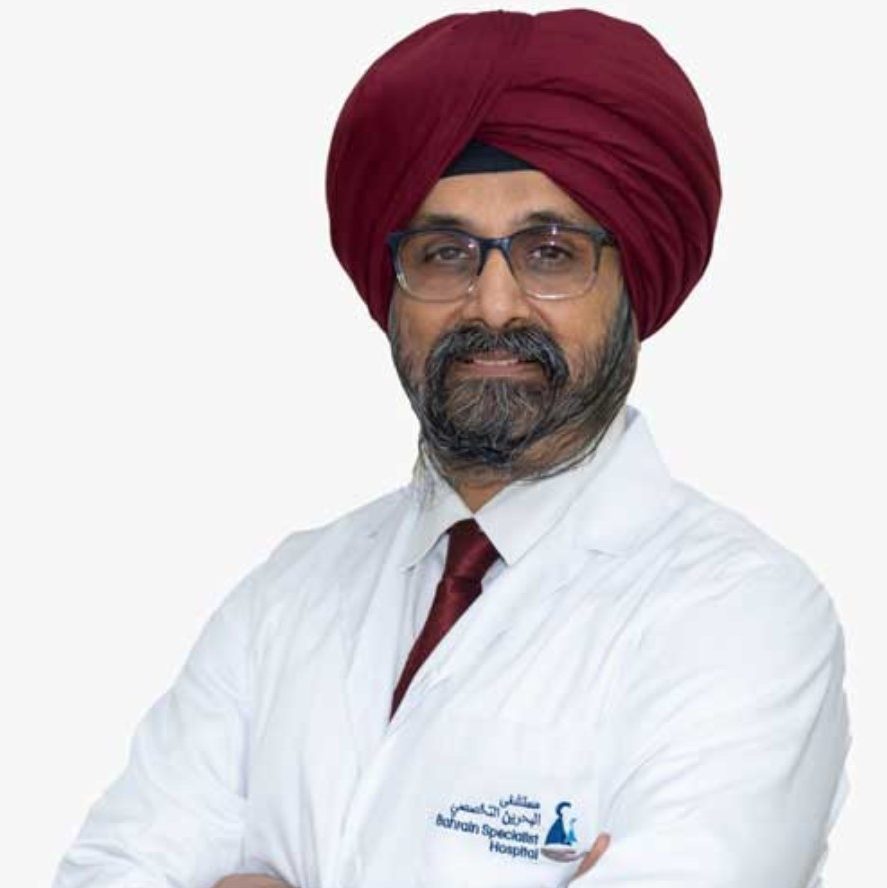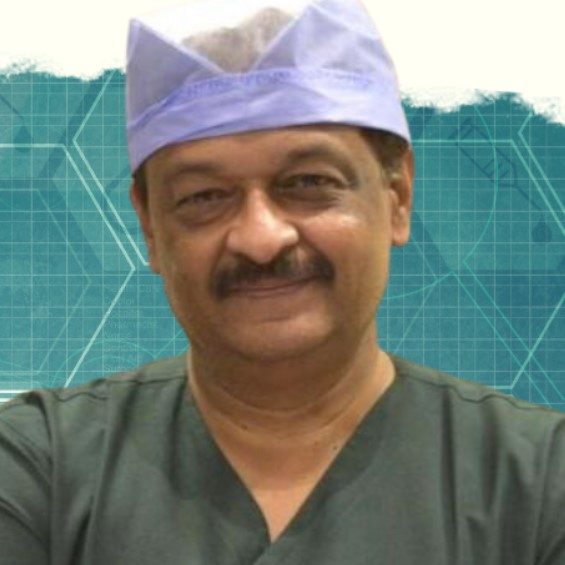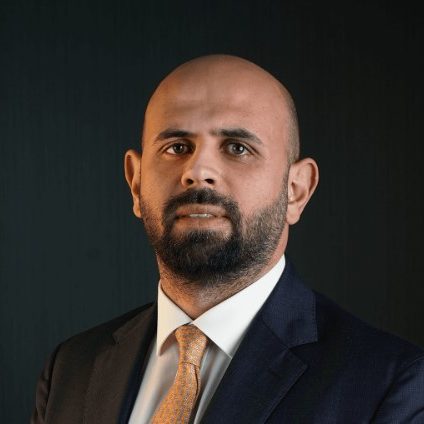
Jaspreet Singh Sandhu
NMC Speciality Hospital
Dr. Jaspreet Singh Sandhu is a highly experienced urologist based in Abu Dhabi, specializing in female stress incontinence, laser prostatectomy, and minimally invasive urology, with over 20 years of expertise.

Syed Imtiaz Ali
Medcare Hospital
Dr. Syed Imtiaz Ali is a highly experienced urologist based in Abu Dhabi, specializing in prostatic disorders and minimally invasive urological surgeries, with over 19 years of expertise.

Mohammed Shahait
Al Zahra Hospital
Dr. Mohammed Shahait is a Consultant Urologist and Robotic Surgeon at Al Zahra Hospital in Dubai, specializing in uro-oncology and minimally invasive procedures, with over 13 years of experience.
The Subtle Depths of Urology
In the world of healthcare, urology stands as a field defined by quiet precision. Urologists navigate through the complexities of the urinary system and male reproductive organs, treating each condition as a unique puzzle that affects the very core of human functionality. Each patient’s story is an intricate part of this ongoing journey.
An Intensive Learning Path
The path to becoming a skilled urologist is long and demanding. It begins with medical school but truly unfolds through years of residency, hands-on experiences, and specialization. This continuous learning process fosters an in-depth understanding of the body’s most vital and often underappreciated systems.
Understanding Kidney Stones
Kidney stones often emerge silently, forming without warning. When they become large enough to block the urinary tract, the pain can be excruciating. Treatments vary, from non-invasive sound wave therapy to surgical procedures, with each stone offering insight into a patient’s overall health and bodily conditions.
Prostate Health: A Vital Focus
Despite its small size, the prostate plays a significant role in male health. Disorders here range from benign conditions like prostate enlargement to more serious concerns such as cancer. Identifying these issues requires a thorough approach, including PSA tests, biopsies, and detailed clinical evaluations. The treatment plan will differ, depending on the diagnosis, involving medication, radiation therapy, or surgery.
Bladder Issues: Quiet Disruptions
Bladder dysfunction can quietly affect daily life, from incontinence to more serious conditions like bladder cancer. Urologists rely on a variety of diagnostic tools—cystoscopies, urine tests, and imaging techniques—to understand the cause. Treatment plans can vary from behavioral therapy to surgical intervention, with each patient requiring a personalized approach.
Diagnostic Advancements in Urology
Modern technology has revolutionized urology. With the aid of MRIs, CT scans, and other imaging tools, doctors can uncover hidden issues that may have otherwise gone unnoticed. These advanced diagnostic methods offer clarity, turning complex symptoms into clear treatment plans.
Erectile Dysfunction: More Than Physical
Erectile dysfunction is a multifaceted issue, affecting not just the body but the mind. Its impact on self-esteem and intimate relationships requires sensitive and comprehensive care. Diagnosis often involves hormone testing, psychological assessments, and a range of treatment options, from lifestyle changes to medications or surgery, making the approach deeply individualized.
Fertility Challenges in Men
Male infertility can be elusive, with causes ranging from low sperm count to hormonal imbalances. Testing and diagnosis may include sperm analysis, blood tests, and other procedures to pinpoint the issue. Treatment options can include hormonal therapy, surgery, or assisted reproductive technologies, all tailored to the patient’s specific needs.
Cultural Sensitivity in Dubai’s Healthcare Landscape
In a culturally diverse city like Dubai, urologists must navigate varying beliefs and customs when providing care. Understanding these cultural nuances allows doctors to offer the highest standard of medical treatment while respecting each patient’s personal values and preferences.
Building Trust with Patients
In urology, the patient relationship is as vital as the medical procedures themselves. Urologists must create a space where patients feel comfortable discussing sensitive issues like sexual health or incontinence. This trust, built through empathy and clear communication, is essential to achieving positive outcomes.
Advancements in Minimally Invasive Surgery
The advent of minimally invasive surgical techniques, such as laparoscopic and robotic-assisted surgeries, has transformed urology. These methods reduce recovery time, minimize scarring, and enhance overall patient outcomes. Such innovations represent a shift towards more efficient and less disruptive care.
Urological Cancer Care: Precision in Treatment
Urological cancers, including those of the kidney, prostate, and bladder, require personalized treatment approaches. Diagnosis involves various tests and collaborative care from a multi-disciplinary team. Treatment plans are carefully crafted, with options ranging from surgery to radiation therapy, all focused on delivering the most effective care.
Pediatric Urology: Compassionate Care for Children
When treating young patients, urologists must approach care with extra sensitivity. Pediatric urology involves managing congenital conditions and infections, requiring a blend of adult expertise and gentle, tailored solutions to meet the unique needs of children.
Managing Chronic Urological Conditions
Chronic conditions such as interstitial cystitis require ongoing care. These conditions often don’t have a cure but can be managed with a combination of medications, therapies, and patient education. Urologists guide patients through the journey, offering long-term strategies to manage symptoms and improve quality of life.
The Importance of Public Awareness
Public health education plays a key role in preventing urological diseases. Early detection, symptom recognition, and lifestyle advice can significantly impact patient outcomes. Urologists often engage in public awareness campaigns, educating communities about the importance of urological health and preventative care.
Expanding Impact: Research and Advocacy
Beyond their clinical practice, urologists contribute to the field through research, policy advocacy, and public speaking. By leading new studies, influencing health policies, and promoting advancements, they ensure continuous improvements in the care and treatment of urological conditions.
A Holistic Approach to Urological Health
Urologists adopt a holistic approach to patient care, considering both physical and mental health. This can include nutritional guidance, stress management, and fitness advice, all aimed at improving overall well-being. Urologists see the whole patient, not just the condition, providing a comprehensive treatment plan that addresses every aspect of health.
Daily Achievements in Urology
The work of urologists often involves small, quiet victories. Removing a kidney stone, restoring bladder function, or improving fertility—these everyday successes have profound impacts. Although much of the work happens behind closed doors, the results are life-changing, bringing relief and improving the quality of life for many.
Trauma Surgeon
Are you interested in exploring details about Trauma Surgery? This essential medical specialty centers on surgically treating injuries caused by accidents, violence, or emergencies. Trauma surgeons are experts in addressing severe conditions, such as fractures, organ damage, internal bleeding, and complex wounds, often in critical situations. Their swift and decisive actions are crucial in stabilizing patients, performing life-saving procedures, and minimizing long-term complications, ensuring the best possible outcomes for those affected by traumatic events.
Trauma Surgeon